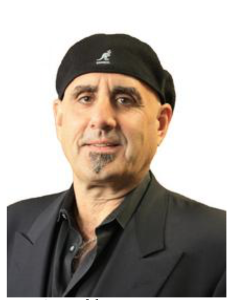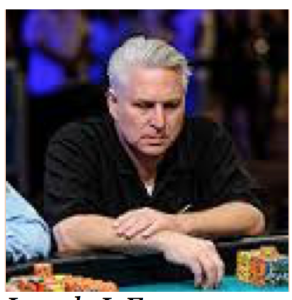The original Wizard of Wall Street was Jay Gould, who began investing in railroads in 1859 and died in 1892, leaving a fortune of $72 million to his family.
That’s the equivalent of $2.1 billion today.
Gould was president of the Erie Railroad for a while. At other times, he controlled the Union Pacific Railroad, the Missouri Pacific Railroad, the elevated railways of New York City and the Western Union Telegraph Company.
Some called him a tycoon; less complimentary voices labeled him a robber baron.
After all, he wasn’t averse to using his connections in government to get what he wanted. In fact, Gould was such a close friend of Boss Tweed of Tammany Hall that when Tweed was held on $1 million bail, Gould was the chief bondsman!
[text_ad]
Also, Gould’s success came way before the rules of the Securities and Exchange Commission, which wasn’t formed until 1934. No doubt the SEC would have taken a dim view of some of Gould’s practices—like the kidnapping that he and his associates organized in Canada that led to five of them (but not Gould) being arrested by the Northwest Mounted Police and imprisoned without bail.
But my main topic today is not Jay Gould. If you want to read more about him, you can read one of his biographies, or at least read his Wikipedia entry.
No, today’s main topic is the 21st Century’s Wizard of Wall Street, otherwise known as Marc S. Mandel.
The 21st Century Wizard of Wall Street
Marc is not particularly famous, and, apparently, not a particularly good investor. (I’ll get to that later.) In fact, he’s only known as the Wizard of Wall Street because that’s the name he chose on his Boulder, Colorado radio show, titled Winning on Wall Street.
And there’s nothing wrong with that.
The trouble started in 2007 when Mandel applied for a license to become a licensed investment advisor in Colorado. He was denied on the grounds that he lied on the application, and told he couldn’t reapply for 10 years.
A few years later, Mandel launched a website, WinningOnWallStreet.com, through which Mandel provided investing advice to paid subscribers.
And there’s nothing wrong with that either. That’s Cabot’s business, too—though we’ve been doing it since 1970, way before the internet allowed anyone to set up a storefront.
But in 2012, Mandel began a relationship with Ditto Trade, Inc., a “first-of-its-kind social brokerage firm” based in Chicago.
Ditto’s software enabled the actions of a “Lead Trader” to be duplicated in the accounts of other investors, theoretically allowing amateur investors to get the same results as expert investors. And of course those amateur investors paid for the privilege.
But investment regulators thought there was something wrong with that, particularly given that Mandel was not a licensed investment advisor.
In October 2014, Colorado Securities Commissioner Gerald Rome filed a civil complaint against Mandel and Winning on Wall Street (WOWS), alleging that Mandel was acting as an “unlicensed investment advisor.”
Mandel denied the claims, saying he “never” claimed to be an investment advisor.
But the commissioner countered, explaining in a press release: “In auto-trading, orders to buy and sell shares of stock or other securities are placed automatically based on an underlying system or program. The WOWS auto-trading membership package allows members to designate Mandel as a ‘Lead Trader.’ Once this authorization is made and funds are deposited, then a trading platform operated by Ditto Trade executes trades on the clients’ behalf whenever Mandel completes his own trades.”
In short, auto-trading constituted trading investors’ money.
Ten months later, in August 2015, a Denver district court judge agreed, and two months later, Denver District Court Judge Shelley Gilman permanently barred Mandel from the securities industry in Colorado.
The sanction included a restitution order in the amount of $80,000, as the court determined that “80 of Mandel’s ‘Lead Trader’ clients are entitled to a minimum of $1,000 in return.”
But that wasn’t the end of Mandel’s troubles.
Because not only had Mandel been using Ditto Trade, he had also been peddling the shares of its parent company, Ditto Holdings.
In September 2015, the Securities and Exchange Commission (SEC) instituted Cease-and-Desist Proceedings against Mandel, arguing that “Mandel sent a number of emails to his roughly 350 newsletter subscribers describing Ditto Holdings as the ‘best opportunity of his lifetime’ and suggesting that Ditto Holdings planned to conduct an initial public offering during 2014 at a price that was nearly ten times higher than the price at which Ditto Holdings was then selling its shares.”
“From late 2012 to September 2013, more than seventy of Mandel’s subscribers purchased securities from Ditto Holdings at a total cost of approximately $3.7 million.” (That’s roughly $50,000 each.) Furthermore, Mandel took possession of some of the investors’ funds before transferring them to Ditto Holdings.
Then the founder of Ditto, Joseph J. Fox (apparently feeling a financial squeeze), “sought Mandel’s help in selling some of Fox’s personal shares of Ditto Holdings common stock. Fox told Mandel that he wanted to sell approximately one million shares of Ditto Holdings stock and asked Mandel to see if any of Mandel’s newsletter subscribers were interested in purchasing shares.”
“In March 2013, Mandel began sending emails to some of his roughly 350 newsletter subscribers describing Ditto Holdings as an excellent investment opportunity, stating that Ditto Holdings planned to have an initial public offering at $10 per share during 2014, and telling them that he had ‘worked out a sweetheart deal’ with Fox to gain access to one million shares at $1 per share.”
“From April 2013 to July 2013, approximately 28 of Mandel’s subscribers purchased stock from Fox at a total cost of approximately $1.25 million.” (That’s an average of $44,643 each.)
“During the same period, Fox (also known as Yosef Yehuda Fox) paid Mandel at least $124,000 in three installments. Each of the payments was worth approximately 10% of the amount of money that Fox had received from his sales of Ditto Holdings.”
Given that Mandel was still not a registered investment advisor, there was definitely something wrong with that.
Mandel accepted the Cease-and-Desist order, without admitting or denying the findings. The SEC wanted Mandel to pay “disgorgement of $124,000 which represents profits gained as a result of the conduct described herein, and prejudgment interest of $5,374,” but after reviewing Mandel’s sworn Statement of Financial Condition, the SEC cut the initial number in half, and ruled that he must pay a total of $62,000, to be paid monthly over a five-year period.
Also, Mandel was barred from the industry, but has the right to apply for reentry after two years.
Meanwhile, back in Colorado, Mandel appealed the decision of the Denver District Court, and the decision was upheld, including the repayment of $80,000 to his followers.
As to Ditto, the company closed shop, bankrupt, in December 2015, and Joseph J. Fox was fined $205,636 by the SEC and barred from the securities industry for five years.
And that’s the end of the story.
But it does raise a few questions.
Who are these people who gave their hard-earned money to a man who promised them the moon but had no track record of success?
They’re not poor, as attested by the money they invested.
Maybe some have so much money that $50,000 was a small bet, and they don’t feel any pain having lost it.
But I assume some do feel pain from the loss, and they were only persuaded to make that high-risk bet because Mandel was such a convincing salesman.
As P.T. Barnum said, “There’s a sucker born every minute.”
Investing Advice You Can Actually Trust
When it comes to investing, you’re far better off dealing with an established trustworthy firm, like Cabot.
For 50 years, we’re been working to help individual investors become better investors, by educating them about successful investing systems and providing advice on implementing these systems.
We’re not perfect—no investing system is—but we always try to do the right thing for our subscribers.
We have no advertisers to muddy our priorities.
And we don’t manage money. If you want that, take a look at Cabot Wealth Management, the company run by my brother Rob.
But if you’re looking for advice on stocks that can help you achieve your investing goals, we can help.
And if one of those goals is to make money fast (the bull market provides a great tailwind), I have two suggestions for you today.
The first is Tyler Laundon’s Cabot Small-Cap Confidential.
Every month, Tyler sends readers a very thoroughly research small cap stock idea—a stock you’ve probably never heard of but that has great growth potential.
As I write, Tyler’s portfolio holds 11 stocks.
Six of them are showing a profit.
And the average profit for the 11 existing positions in the portfolio is over 50%.
If you’d like your portfolio to look as good, you can learn more here.
Alternatively, you can follow Carl Delfeld’s Cabot Explorer, where global growth stocks are thriving.
As I write, Carl’s portfolio holds nine stocks (plus a new recommendation).
And the average profit for the entire portfolio is 79%.
[author_ad]
*This post has been updated from a previously published version.




